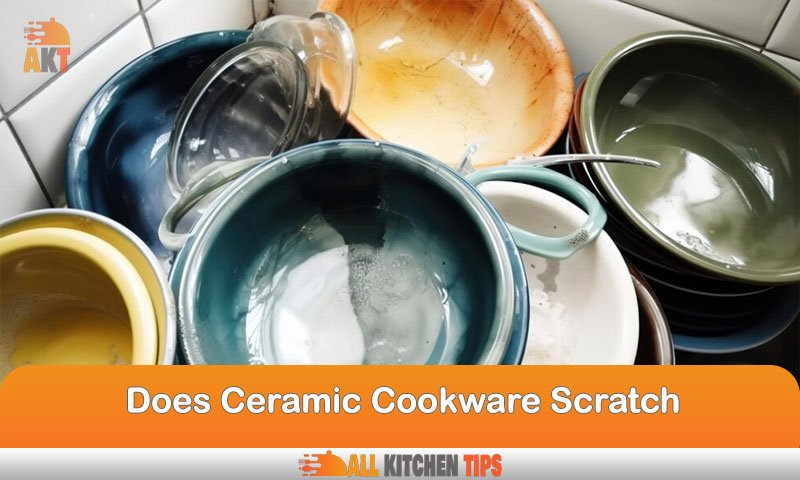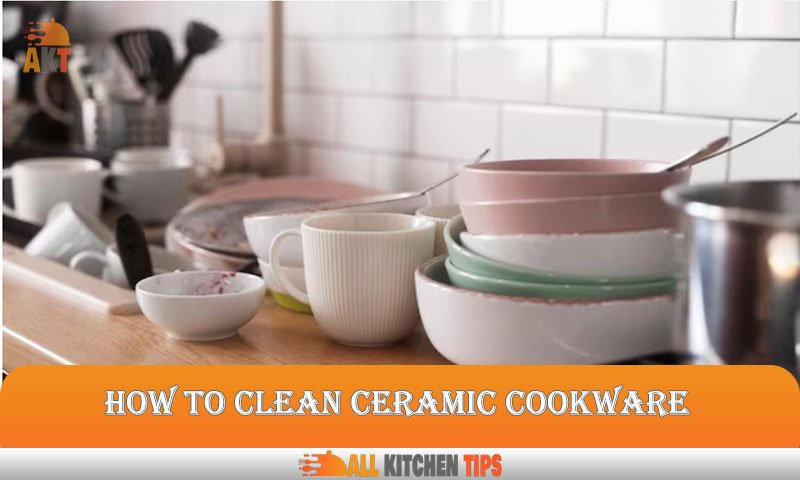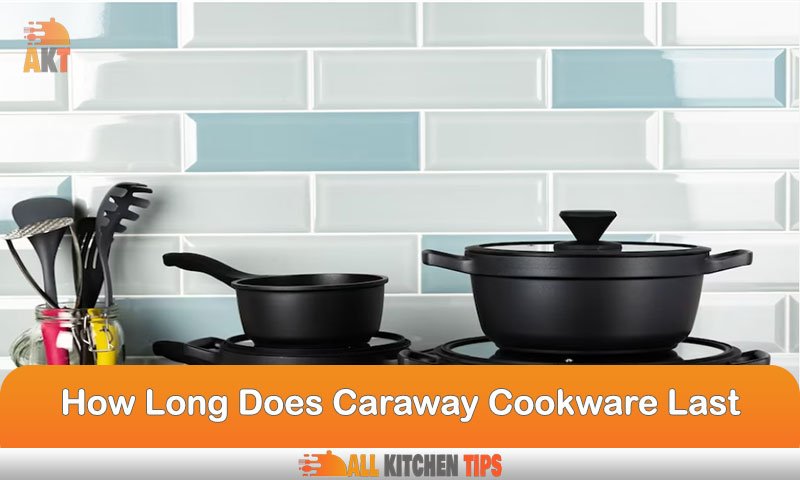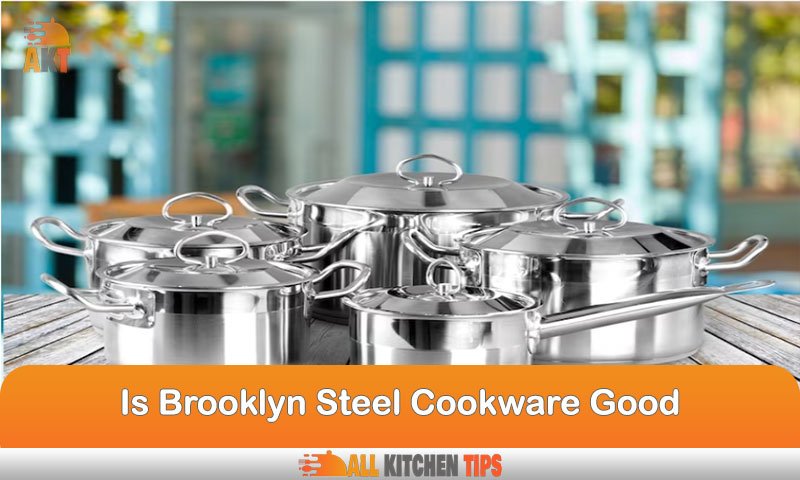Ceramic cookware can scratch with improper use or contact with harder materials. However, if used and cared for properly, ceramic cookware can be durable and long-lasting.
Ceramic cookware has been gaining popularity in recent years due to its non-stick properties and environmentally friendly materials. However, many people wonder if ceramic cookware scratches easily and if it is a good investment in terms of durability. The answer to this question is yes and no.
Like any other cookware, ceramic cookware can scratch with improper use or contact with harder materials. However, if used and cared for properly, ceramic cookware can be durable and long-lasting. In this article, we will discuss the benefits of ceramic cookware, how to care for it, and what to avoid to prevent scratches.
Understanding Ceramic Cookware And Its Benefits

If you’re considering switching to ceramic cookware, it’s important to understand its definition, how it compares to other types of cookware and its advantages. Let’s dive deeper into each of these topics with our h3 headings.
Definition Of Ceramic Cookware
A metal pan, usually aluminum, is coated with a layer of ceramic material, and then heated to high temperatures to create ceramic cookware. This creates a final product that is non-stick, scratch-resistant, and able to endure high temperatures. Ceramic cookware is typically glazed, which means it has a smooth and durable surface that is resistant to scratches and stains.
Comparison To Other Types Of Cookware
There are several types of cookware available on the market, and each has its own advantages and disadvantages. Here’s how ceramic cookware compares to other types of cookware:
- Stainless steel: Stainless steel cookware is durable and non-reactive, but it is not non-stick and can be difficult to clean.
- Aluminum: Aluminum cookware is affordable and lightweight, but it is not as durable as other types of cookware and can release harmful chemicals when heated.
- Teflon/non-stick: Non-stick cookware is easy to clean and non-reactive, but it can release harmful chemicals when heated at high temperatures and is not as durable as other types of cookware.
Compared to these other types of cookware, ceramic cookware is the perfect marriage of durability and non-stick properties. It’s also a healthier option since it does not release harmful chemicals.
Advantages Of Using Ceramic Cookware
Using ceramic cookware has a multitude of advantages that make it an excellent choice for home cooks. Here are some of the key benefits:
- Non-toxic: Ceramic cookware is free of PFOA, PTFE, lead, and cadmium, making it a safe and non-toxic option for cooking.
- Eco-friendly: Since ceramic cookware is made from inorganic materials, it does not release harmful chemicals into the environment and can be recycled.
- Easy to clean: The smooth surface of ceramic cookware makes it easy to clean and maintain.
- Versatile: Ceramic cookware is suitable for use on all types of stovetops, including gas, electric, and even induction.
- Durable: Ceramic cookware is scratch-resistant and can withstand high temperatures without warping or cracking.
- Stylish: Ceramic cookware is available in a variety of colors and styles, making it a stylish addition to any kitchen.
Ceramic cookware is an excellent choice for home cooks looking for a non-toxic, eco-friendly, and durable option. Its comparison to other types of cookware makes it stand out, and the advantages of using ceramic cookware are plentiful. If you’re considering switching to ceramic cookware, it’s a great choice that will withstand the test of time.
The Issue Of Scratching On Ceramic Cookware

Ceramic cookware is a popular choice among home chefs due to its non-stick surface, easy-to-clean nature, and aesthetic appeal. However, like any cookware, it is prone to scratches over time. In this section, we will discuss the issue of scratching on ceramic cookware, what happens when it scratches, how scratches occur, and the effects of using scratched ceramic cookware.
What Happens When Ceramic Cookware Scratches?
When you notice scratches on your ceramic cookware, it is important to investigate the extent of the damage. Here are some things that can happen when ceramic cookware scratches:
- Tiny cracks and pits can form on the surface, causing food particles to stick to these crevices.
- The scratch can weaken the ceramic cookware’s non-stick surface, leading to food sticking to the pan or skillet.
- Scratches can create hotspots on the cooking surface, leading to uneven cooking.
- The metallic base of the cookware can be exposed, which can result in the formation of rust, leading to health hazards.
How Do Scratches Occur?
Scratches can occur on ceramic cookware due to various reasons:
- Using metal utensils can scrape the surface of the ceramic cookware.
- Cleaning with abrasive sponges or cleaners.
- Storing ceramic cookware on top of one another can lead to scratches.
- Overheating the cookware can cause the surface to become brittle, leading to chips and scratches.
What Are The Effects Of Using Scratched Ceramic Cookware?
Using scratched ceramic cookware can have a significant impact on its performance, safety, and health. Here’s what can happen:
- The non-stick surface will break down over time, losing its effectiveness and causing food to stick.
- Chips and scratches can harbor bacteria, leading to potential health hazards.
- The scratches can cause ceramic cookware to release harmful chemicals, especially when heated at high temperatures.
- Cleaning scratched ceramic cookware can be tough, which can compromise hygiene levels.
It is essential to take care of your ceramic cookware to prevent scratches and ensure longevity. Using non-metallic utensils, careful storage, and proper cleaning practices will keep your ceramic cookware in top condition, ensuring safe, healthy, and delicious meals.
A Closer Look At Ceramic Cookware Composition
Ceramic cookware has gained popularity in recent years due to its non-stick properties and natural composition. However, one primary concern among consumers is whether ceramic cookware scratches easily. We will take a closer look at the composition of ceramic cookware and how it can affect its susceptibility to scratches.
What Are The Materials Used In Ceramic Cookware?
Ceramic cookware is made of different materials, and they include:
- Clay
- Minerals
- Water
How Do These Materials Affect The Susceptibility Of Ceramic Cookware To Scratches?
The materials used in making ceramic cookware can affect its susceptibility to scratches in the following ways:
- Clay: Since clay is a soft material, it can easily scratch. However, it is coated with a glaze, which makes it more resistant to scratches.
- Minerals: The minerals used in making ceramic cookware are hard and durable, which makes the cookware resistant to scratches. They also contribute to the non-stick properties of the cookware.
- Water: Water is used as a binder to hold the materials together. If water is not used in the right proportion, the cookware can easily scratch.
Ceramic cookware is a safe and durable option for cooking. However, it can scratch if not handled properly. By understanding the composition of ceramic cookware and how it affects its susceptibility to scratches, you can take better care of your cookware and enjoy its benefits for years to come.
How To Prevent Scratching On Ceramic Cookware
Ceramic cookware is becoming increasingly popular due to its non-stick properties and durability. One question that often arises about ceramic cookware is whether it scratches easily. In this post, we’ll delve into the topic and provide tips on how to properly care for your ceramic cookware to prevent scratching.
Proper Care And Maintenance Of Ceramic Cookware
To ensure your ceramic cookware lasts a long time without scratching, it’s important to follow proper care and maintenance guidelines. Here are a few tips to keep in mind:
- Always hand wash ceramic cookware as opposed to putting it in the dishwasher. Dishwasher detergent is often too harsh, and the high temperatures can cause the cookware to scratch or lose its non-stick qualities.
- Be sure to use mild dish soap when cleaning your ceramic cookware. Avoid using abrasive sponges or scrubbers to avoid scratching.
- Let your ceramic cookware cool completely before washing or adding cold water. Extreme temperature changes can cause cracking or other damage.
- Store your ceramic cookware properly by stacking pieces with a soft cloth or paper towel in between.
What Type Of Utensils To Use And Avoid
Another factor to consider when it comes to preventing scratches on your ceramic cookware is the type of utensils you use. Here’s what to keep in mind:
Use
- Wooden or silicone utensils are ideal for use with ceramic cookware.
- Plastic utensils can also be used, but be sure to use a higher quality plastic to avoid melting or warping.
Avoid
- Metal utensils should be avoided when using ceramic cookware. They can easily scratch or damage the non-stick coating.
Ways To Minimize Scratching And Prolong The Lifespan Of Ceramic Cookware
Even with proper care and utensil usage, scratches on ceramic cookware can still occur. Here are a few ways to minimize scratching and help prolong the lifespan of your cookware:
- Use a lower heat setting when cooking with ceramic cookware to prevent warping or other damage.
- Avoid sliding or dragging your utensils across the surface of the cookware.
- Be gentle when cleaning the cookware, avoiding any harsh scrubbing or abrasive materials.
- Consider using a protective liner or mat when storing or stacking your ceramic cookware.
By following these tips and properly caring for your ceramic cookware, you can help prevent scratching and ensure it lasts for years to come. Happy cooking!
FAQs
Does Ceramic Cookware Scratch Easily?
Ceramic cookware can be scratched, but it’s less likely. Avoid using metal utensils to protect your cookware.
Can You Use Metal Utensils On Ceramic Cookware?
Metal utensils can scratch and damage ceramic cookware. Use wooden or silicone utensils instead.
How Do You Clean Scratches On Ceramic Cookware?
Mix water and baking soda to create a paste; apply it to the scratch and scrub lightly. Rinse with warm water.
Conclusion
As we can see, ceramic cookware is an excellent option for those who want to cook healthy and delicious meals with minimal effort and time. Although the material is sturdy and scratch-resistant, it is crucial to handle it with care to avoid unnecessary scratches.
When purchasing ceramic cookware, it is essential to select high-quality products with a strong enamel coating and to use utensils that are made of silicone, wood, or plastic to protect the surface of the cookware. Additionally, it is crucial to follow the manufacturer’s instructions for cleaning and maintenance to keep the cookware in good condition for a long time.
Overall, with a little bit of caution and care, you can enjoy the benefits of ceramic cookware while keeping it scratch-free. So, go ahead and invest in high-quality ceramic cookware to add a touch of elegance to your kitchen and make cooking effortless and enjoyable.





